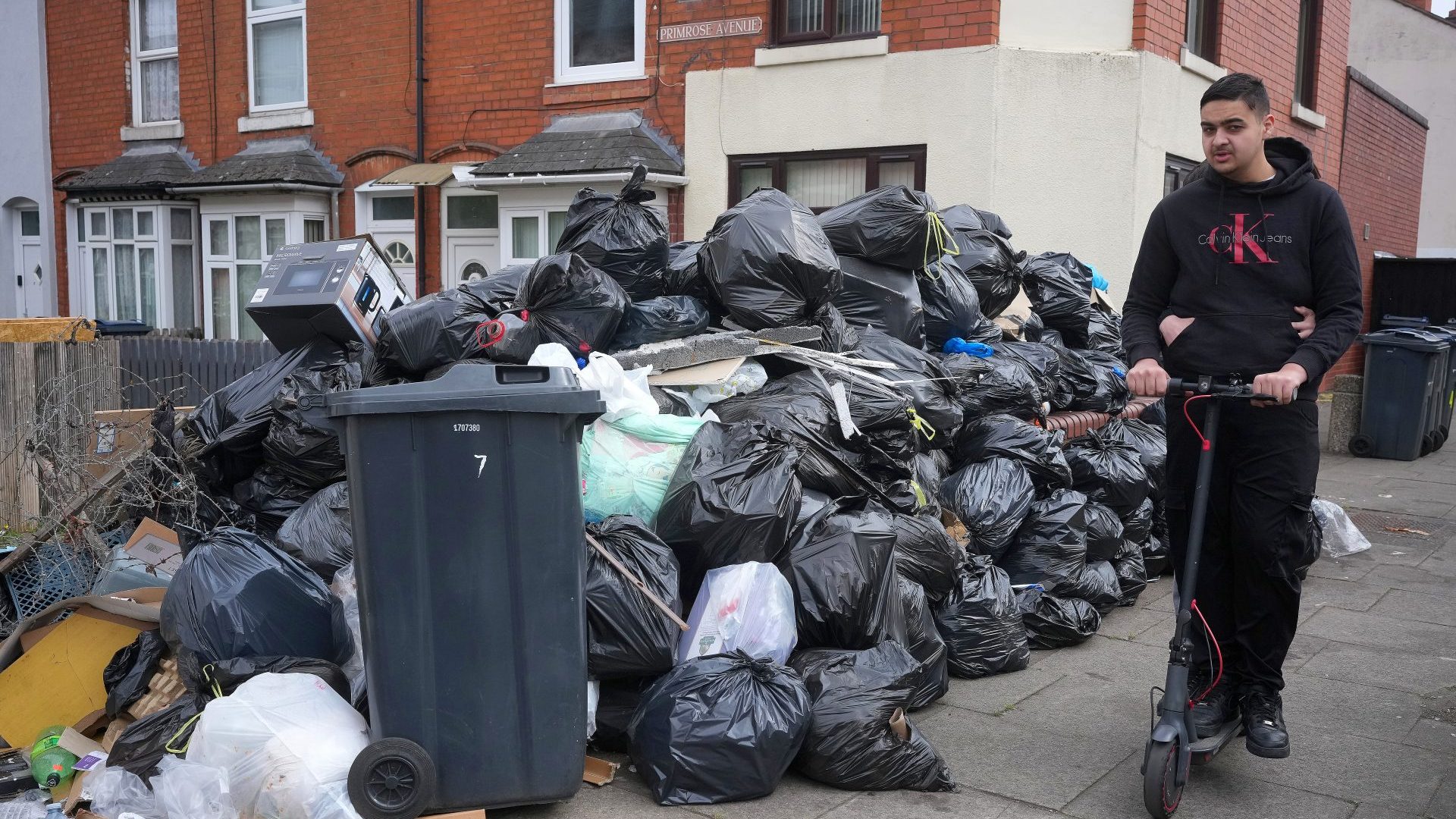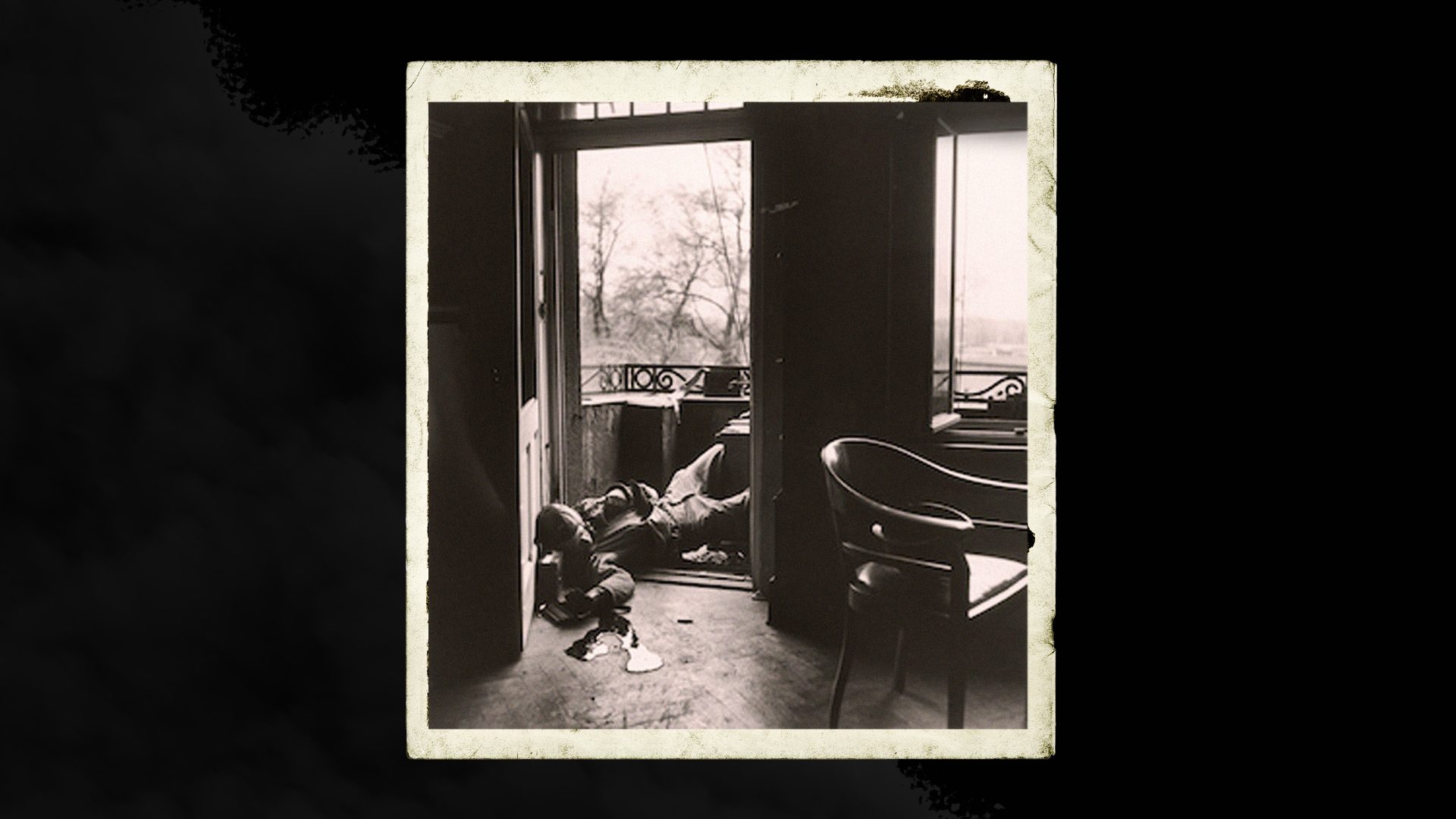When I walk down to the massive waste bin, it’s already full. The pile of rubbish that has built up around it is now two weeks old. I’m sure my bin bags from last week are in there somewhere. And the week before that. The usual dilemma around doing the bins used to be whether I could be bothered. Now everyone is bothered.
The refuse collectors here in Birmingham have been on strike for weeks now. The stench of old rubbish is terrible. A cat nudges at a torn bin bag and stalks away. Even strays have standards – not even they will touch three-week-old leftovers from a bin that has turned rancid in the sun.
And then our bins were finally cleared. At around 6am I was woken by the sound of the dustcart backing into the cul-de-sac – they are always loud, and I sleep lightly and usually with the window open. Even so, to hear them was a nice surprise. Finally, the mess in the street was gone. But there is still a larger mess to deal with.
The next time I take the bin out, I see my neighbour, whose toddler likes picking stuff up off the floor. There are a few young children in my neighbourhood, and as the bins piled higher, I was worried about kids foraging through the rubbish and coming across a rat. And then I learned that other parts of Birmingham – from Selly Oak to Perry Barr – still have tons of rubbish piled up on the streets.
Teacher strikes were fun when I was in primary school, because it meant no school. Instead, it was a day for watching cartoons. But bin strikes add a stench to the city that I cannot shake. It is not just the bins and waste lining the streets. It is a sign that the council does not know how to negotiate with its workers.
Yes, I am frustrated, but I still find myself backing the unions. Despite the now world-famous piles of rubbish that still line some of our streets, I understand the frustration of both the strikers and the citizens. But we have a common foe – the council and austerity.
I have seen shuttered youth centres in Handsworth and am mourning the loss of funding to libraries across our city. So much of what makes Birmingham vibrant is falling apart, and the rubbish stands as a metaphor for that decay.
The trucks that come to collect the rubbish are probably paid for by the council. I wonder how they have the money to pay for private contractors to replace the workers that they do not want to pay. How does that work?
Who will blink first? The councillors who can no longer escape the mess, or the workers who seem intent on drawing this out? Either way, it is the city that is caught in it all. No one wants to visit a place that has turned into a dump, and no one wants to wander about on the off chance of bumping into a rat the size of a small cat.
The trucks did come again this morning. But the air is still filled with the stench of uncertainty and the knowledge that this will not be the last time.
Michaela Mikusha is a freelance journalist who writes about culture, politics, and racial and gender politics



